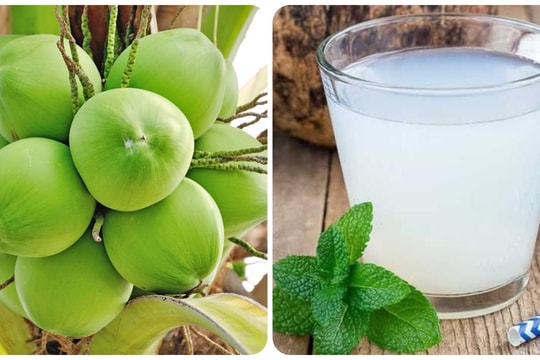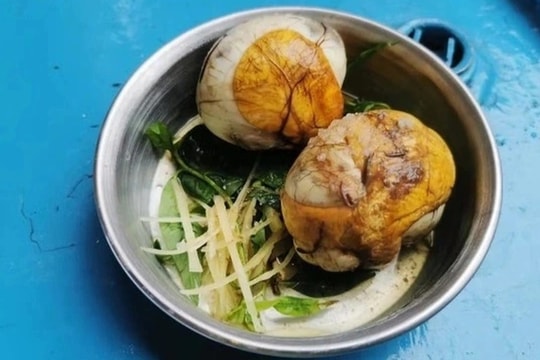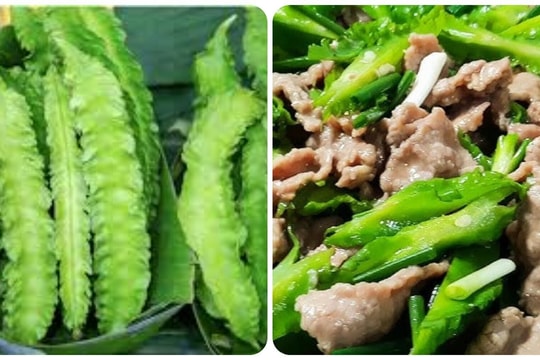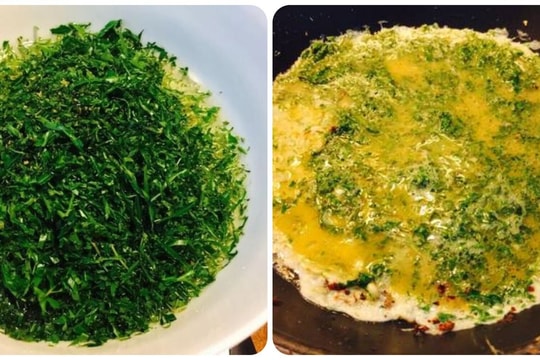30 everyday foods to boost your immune system
Check out this list of foods to eat every day to boost your immunity.
The importance of food
Food fuels the immune system by helping it create new immune cells, protective antibodies, proteins, and enzymes, which together thwart disease-causing invaders. In fact, research shows that providing your body with the right key nutrients through a balanced diet is one of the best ways to boost immunity and prevent colds, stomach ailments, and the like.
That’s partly because the digestive tract your food travels through contains 70% of your immune system and a large portion of your gut microbiome, explains Mary Weiler, PhD, RD, a nutrition scientist. The microorganisms that make up your gut microbiome require a healthy balance of food-derived bacteria to function and subsequently support optimal immune health.
Here are 30 immune-boosting foods you should consider adding to your diet, which are especially rich in nutrients that support your body's ability to fend off harmful pathogens.

Yogurt boosts immunity
Think of probiotics as “good bacteria” in the gut, helping to influence the microorganisms that live in the digestive tract, explains Dr. Weiler. A 2017 study published in the journal Nutrients found that consuming probiotic-rich yogurt daily can improve immune function by increasing the activity of natural killer cells, or cells that limit the spread of disease. Just remember to choose yogurts that are not too high in sugar; anything with less than 8 grams of total sugar is a healthy choice.
Oats and barley
Research shows that these grains contain beta-glucan, a type of fiber that helps fight disease by stimulating immune cells. Fiber in general also provides nutrients for healthy gut bacteria to thrive, which in turn supports the immune system, Weiler explains.
Garlic
Garlic is powerful because it contains the active ingredient allicin, which fights infections and bacteria. In one study, British researchers gave 146 people either a placebo or garlic extract for 12 weeks; those who ate garlic had a two-thirds lower risk of catching a cold. Another 2020 meta-analysis found that garlic consumption may reduce the risk of colorectal cancer.
Shellfish
Selenium is abundant in shellfish such as oysters, lobsters, crabs and clams... helping white blood cells produce cytokines, proteins that help eliminate influenza viruses from the body.
Chicken soup boosts immunity
When University of Nebraska researchers tested 13 brands of chicken soup, they found that all but one (chicken ramen) blocked the migration of inflammatory cells. This is an important finding because cold symptoms are a response to cell buildup in the bronchial tubes. The amino acid cysteine, released from chicken during cooking, is chemically similar to the bronchitis drug acetylcysteine, which may explain the results. The soup's salty broth also thins mucus, similar to the effect of cough medicine. Added spices, such as garlic and onions, may increase the soup's immune-boosting ability.
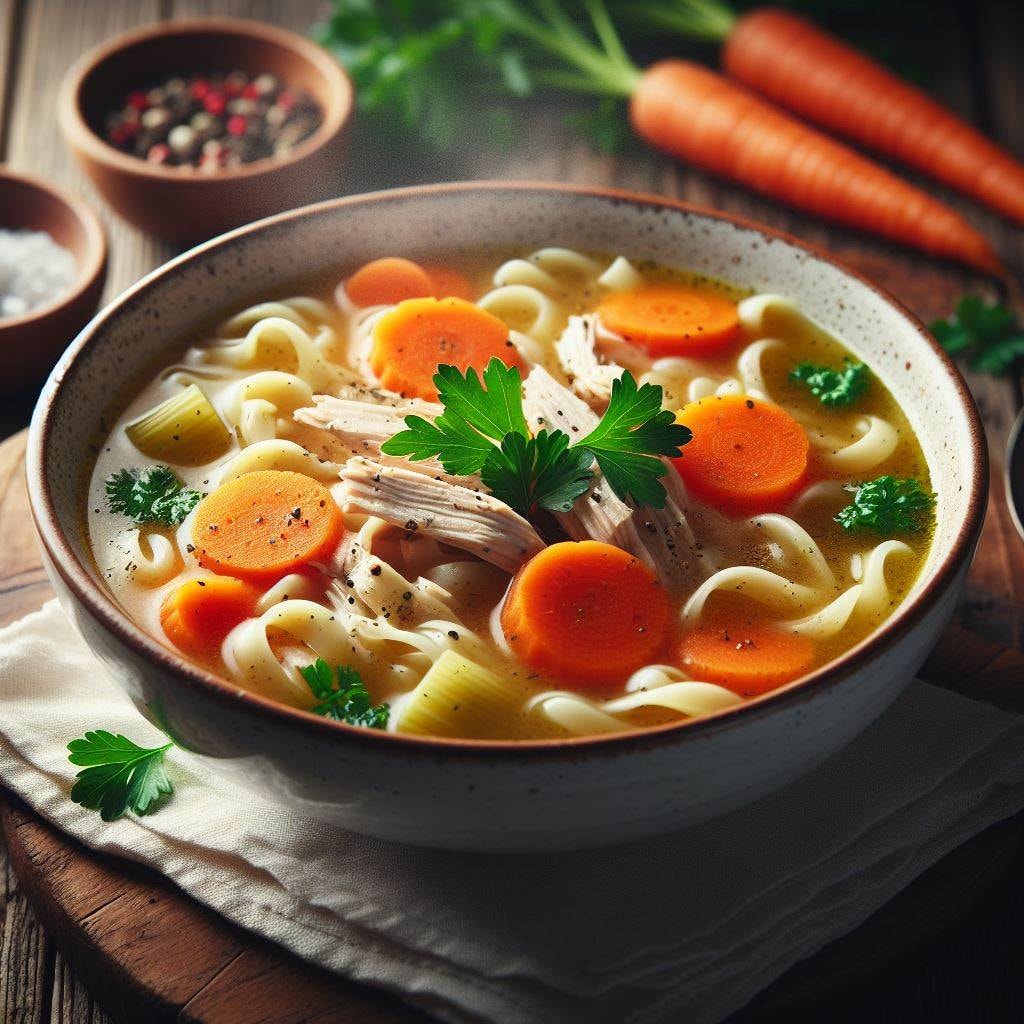
Turmeric
Turmeric contains curcumin, a compound with anti-inflammatory properties that can help support a healthy immune system. One study investigated how curcumin might be useful in preventing and treating chronic diseases associated with inflammation and found that it has potential as a therapeutic agent for conditions such as arthritis, cancer, and cardiovascular disease, in part due to its immune-modulating properties.
Tea
Black tea contains L-theanine, an immune-boosting amino acid. Both black and green tea contain catechins, antioxidants that are thought to help prevent the flu.

Beef
Zinc is essential for the development of white blood cells, the brave immune system cells that are able to recognize and destroy invading bacteria, viruses and other "bad guys". Beef is a rich source of zinc, as are pork, milk and beans...
Pork
It is important to get 8 to 11 mg of zinc a day to keep your immune system functioning properly. Pork is another source of zinc in a balanced diet, such as grilled pork chops or tenderloin.
Almond
Almonds are high in vitamin E, containing about 7 mg per serving. Vitamin E is an antioxidant that can help protect cells from damage and therefore may help prevent disease.

Sweet potato
You may not think of your skin as part of your immune system. But this vital organ serves as a first line of defense against bacteria, viruses, and other harmful invaders. Your skin needs vitamin A to stay healthy. Vitamin A plays a key role in the production of connective tissue, an important component of skin. One of the best ways to get vitamin A in your diet is from foods containing beta-carotene (which gives it its vibrant orange color), such as sweet potatoes, carrots, squash, canned pumpkin, and cantaloupe.
Ginger
Ginger may help boost immune function by reducing inflammation in the body.
Kale
Along with orange products, dark green leafy vegetables like kale contain vitamin A and can help boost immune function.
Bell pepper
There’s a reason you’re told to take vitamin C when you’re sick: The nutrient is great for your skin, which acts as a barrier between your body and harmful organisms. On top of that, studies show that not getting enough vitamin C can actually impair your immune response and make you more susceptible to infection. A 2017 review of research found that vitamin C supplements can help prevent respiratory infections or, at the very least, help reduce the severity and duration of symptoms if you do get a cold.
Broccoli
Broccoli is rich in vitamins A and C, as well as fiber, which work together to support a healthy gut microbiome and immune system.

Egg
You already know that vitamin D is important for your bones because it helps you absorb calcium properly, but it's also essential for a healthy immune system. Scientists have discovered that your immune cells actually have vitamin D receptors, which are important for regulating your body's natural defense mechanisms.
Foods rich in vitamin D, like eggs, can help you meet your daily needs.
Cereal
Some cereals are fortified with vitamin D, which helps activate immune cells and regulate their function properly and is important for innate and adaptive immunity. A serving of wholegrain breakfast cereal with half a cup of skim milk provides 40% of the recommended daily value of vitamin D.
Bone broth
Bone broth is made by boiling bones and connective tissue from animals, which releases nutrients like collagen, amino acids, and minerals. These nutrients can help support immune function and overall health.
Kefir
Like yogurt, kefir, a fermented milk drink, contains immune- and gut-boosting probiotics.
Fatty fish
Salmon, mackerel, and herring are rich in omega-3 fatty acids, which help reduce inflammation (salmon is also another source of vitamin D). One animal study also found that this nutrient may help prevent different types of flu.
Citrus fruits
Citrus fruits such as oranges and grapefruits are rich in vitamin C, a nutrient essential for immune function. Vitamin C builds healthy skin and tissues that fight off bacteria and other germs. It also contributes to the rapid growth of B cells and T cells, two white blood cells that produce antibodies and fight infections.
Sunflower seeds
Sunflower seeds are high in vitamin E, an antioxidant that can help protect cells from damage.
Blackberries
Raspberries are high in antioxidants, plant compounds that can help protect the body from environmental stressors and bacteria. They also contain fiber and vitamin C, which support a healthy immune system and gut.
Chicken breast
Protein is an important building block of antibodies and immune cells, and it also aids in wound healing. In general, aim for 25 to 30 grams of protein at each meal to get your daily protein needs, and chicken breast is a high-quality source.
Legumes
If you eat a plant-based diet and are looking to increase your protein intake to boost immune function, consider a legume salad or a portion of baked beans. According to the United States Department of Agriculture (USDA), one cup of cooked lentils has 18 grams of protein.
Celery
Celery is high in fiber, which feeds the beneficial bacteria in your gut to support your immune system. This crunchy snack also has a high water content, which can give your immune and digestive systems a much-needed boost of hydration. Hydration is important for maintaining mucous membranes, which trap bacteria and viruses and aid in their release through coughs and sneezes.
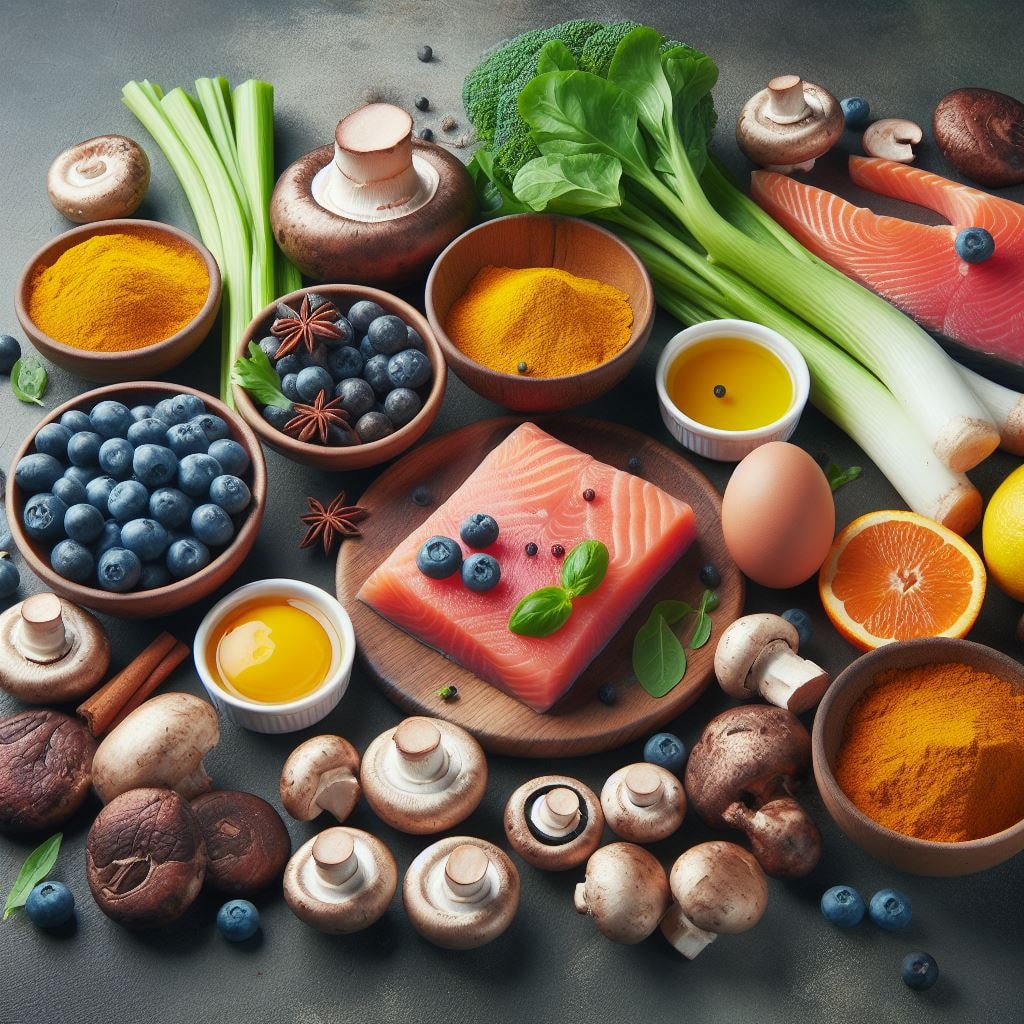
Mushroom
Studies show that mushrooms increase the production and activity of white blood cells. Mushrooms are also an excellent source of vitamin D.
Kiwi fruit
Kiwis contain vitamin E and water, which provide essential protection and hydration to all body systems. Vitamin E has been shown to increase the proportion of T cells, white blood cells that seek out and destroy harmful invaders.
Blueberries
Blueberries are rich in polyphenols, antioxidants that help protect against inflammation. That's why this superfood has been studied for its many health benefits, including heart and immune health.
Brazil nuts
Brazil nuts are high in selenium. According to the Harvard TH Chan School of Public Health, selenium, through selenoproteins and enzymes, has antioxidant properties that help break down peroxides that can damage tissue and DNA.


